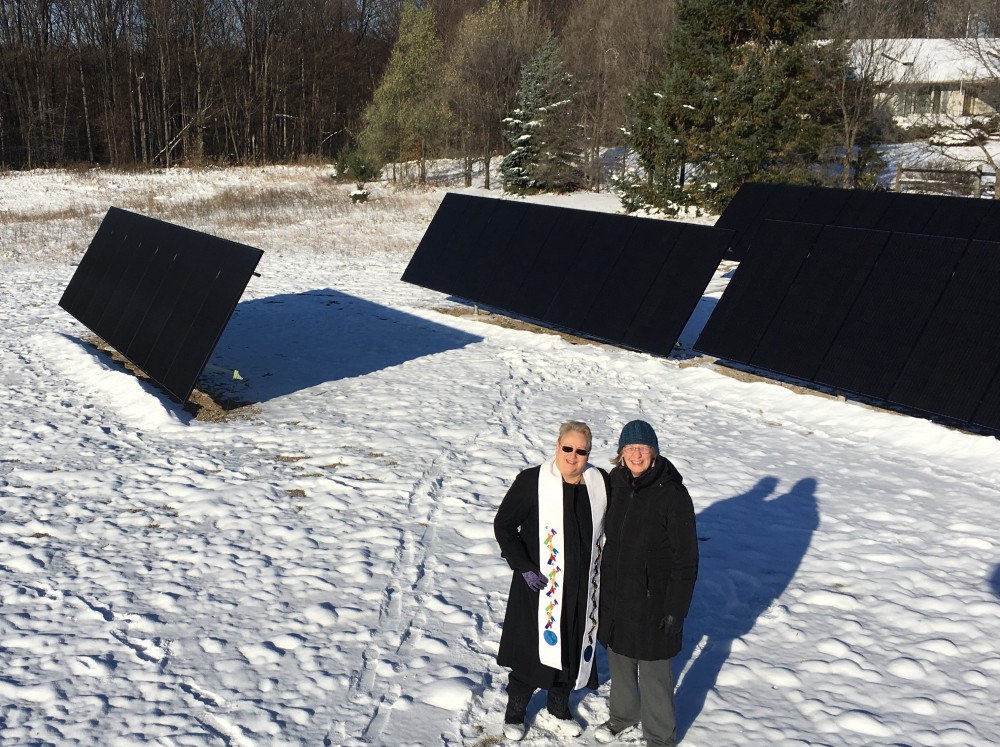Michigan church shares innovative plan for low-cost solar panels

In 2017, after installing solar panels in their home, Fred and Nancy Elmore began thinking about how their church—Keswick United Methodist in Suttons Bay, Michigan—could do the same.
But the plan proved cost prohibitive for the congregation; an average-sized solar panel installation costs tens of thousands of dollars. So the church’s finance committee got creative. After consulting with local sustainability groups, the Elmores formed a private corporation (called Keen Weh, which is Ojibwe for “all of us together”) that bought the new panels and then started selling power to the church at a rate similar to what they were already paying the local energy company.
Keen Weh, unlike the church, is a for-profit entity, so it was eligible for a 30 percent solar investment tax credit. And unlike the Elmores as individuals, the corporation was able to receive a US Department of Agricultural grant to cover an additional 25 percent of the cost.




